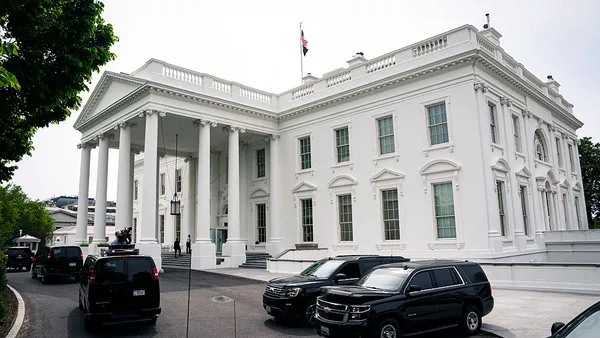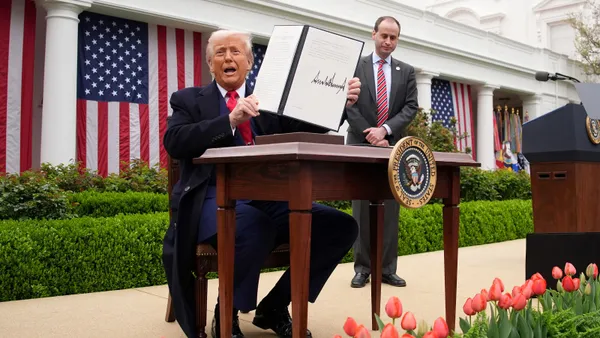Dive Brief:
- Ronald Olson, former vice president and deputy operation manager for Turner Construction Co., pleaded guilty in federal court last week to one count of tax evasion in relation to approximately $1.5 million in bribes he accepted while he was working on projects for media firm Bloomberg, according to a U.S. Department of Justice press release.
- Audrey Strauss, acting U.S. attorney for the Southern District of New York, said Olson took the bribes from subcontractors between 2011 and 2017. The indictment against Olson said the bribes from six subcontractors came in the form of cash, materials and labor for work at his personal residence.
- For the tax evasion charge, Olson faces up to five years in prison, a fine of $250,000 or twice the gross gain or loss from the offense and must pay restitution. Olson also has charges of conspiracy, bribery and bid-rigging pending as a result of an action brought against him by the State of New York.
Dive Insight:
As part of the same scheme, the DOJ also levied charges of tax evasion against former Turner project manager Vito Nigro; Anthony Guzzone, former Bloomberg director of global construction; and Michael Campana, former construction manager at Bloomberg.
Campana has been sentenced to two years in prison on evading taxes of $420,000 of bribes and has also pleaded guilty to state charges. Campana, who has already paid $155,000 in back taxes, will also serve three years of supervised release and pay a fine of $10,000.
The case against Olson and the others came to light in February 2018 as part of a New York State Police and Manhattan District Attorney investigation into $100 million of alleged "pay-to-play" schemes in New York City's interior construction industry. Experts told The New York Times that fraud in the city's $9 billion interior construction sector was one of the reasons that building costs in the city ran so high.
Part of the investigation centered around renovations at Bloomberg's Manhattan offices, where construction project executives, subcontractors and vendors were accused of trying to steal approximately $15 million from Bloomberg.
Manhattan D.A. Cyrus Vance Jr. said that Olson, Campana, Nigro and Guzzone took bribes from certain subcontractors in exchange for giving them work and submitted about $1 million of padded bills to Bloomberg. The four reportedly went around the internal corporate controls intended to prevent fraud.
A new type of fraud related to pandemic relief efforts is also making news.
Last month, the DOJ announced that it had charged the owner of a Washington, D.C., construction company with submitting fraudulent documents in order to obtain $400,000 in forgivable Paycheck Protection Program loans.
Authorities said that Oludamilare Olugbuyi, as part of his loan applications, turned in fraudulent tax documents supporting his claims that he needed the PPP money. Prosecutors said he also filed a fraudulent personal tax return in order to qualify for a novel coronavirus relief payment of $1,200.
The complaint also alleges that the Social Security numbers reflected on the forms were either invalid or assigned to other people.
PPP loan recipients who use the proceeds to pay their employees and other qualified expenses do not have to pay the money back. Funds spent on nonqualified items must be paid back in two years at a 1% interest rate.













